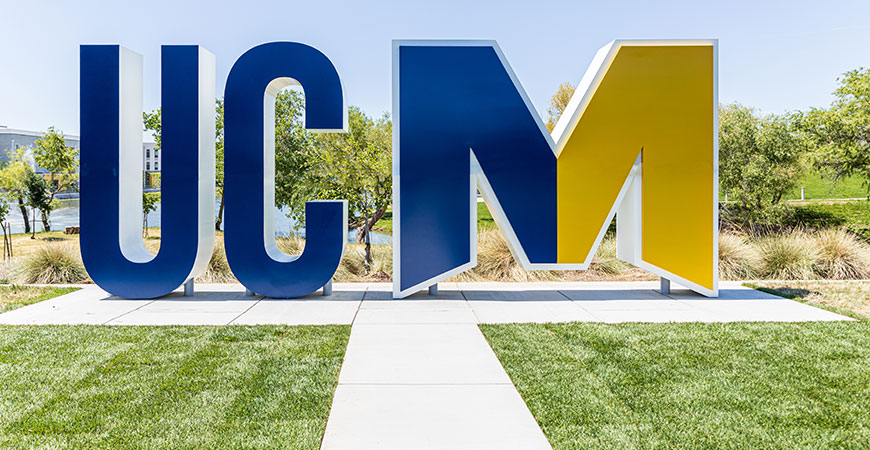
Graduate student Samuel Leventini comes from a long line of educators, and the tribology researcher thinks he might want to follow in those footsteps.
Thanks to a new supplemental grant from the National Science Foundation (NSF), Leventini will get the opportunity to find out if teaching is really the path for his life.
“My father and paternal grandfather are teachers, and my maternal grandfather was a professor of English at CSU Stanislaus. With that lineage, education has always been important to me,” Leventini said. “I enjoyed my time as a teaching assistant, and this opportunity seemed like the perfect next step in growing myself as an educator.”
Leventini is in the third cohort of UC Merced’s CONDESA program. CONDESA stands for Convergence of Nano-engineered Devices for Environmental and Sustainability Applications and is an NSF-funded program designed to provide extensive training, research and professional development for graduate students. Graduate students in the program bring together their research in physics, chemistry, engineering and environmental science to develop nano-sensors for sustainability applications.
The graduate students who will go through the program over five years could develop the next generation of solutions to pressing environmental challenges and be part of a new group of diverse and globally competitive nano-engineers, said physics Professor Sayantani Ghosh, a lead on the CONDESA program.
But not all of them see research as their career goal. That's why this new supplement is a big deal for a lot of the graduate students, Ghosh said. It is kickstarting a partnership between UC Merced and CSU Northridge through which graduate students will be able to teach at the collegiate level.
The goal of this funding is to establish thriving collaborations between an NRT (NSF Research Traineeship) program, which CONDESA is, and an NSF PREM (Partnerships for Research and Education in Materials) center, Ghosh explained. CSU Northridge has one of these prestigious centers built around the theme of innovation in quantum materials, an area that overlaps with CONDESA’s research core.
Four CONDESA graduate students will go to Northridge for one semester and teach lab courses they develop. In exchange, CONDESA will host a summer research program for Northridge undergraduates and hold a research symposium.
Fellow third-year graduate student Matthew Metcalf is also looking forward to the spring semester at Northridge.
“While at UC Merced, I found working as a teaching assistant to be incredibly fulfilling and quickly realized that I’m very passionate about teaching,” he said. “As a result, my career goal has shifted from physics research to becoming a lecturer or teaching professor. I applied for the opportunity at CSU Northridge to try working as a genuine instructor and accrue more teaching experience.”
Ghosh said there are quite a few graduate students who already know they want to be teachers, and this program offers them a chance to go beyond tutoring or being teaching assistants.
“They will be able to say they have developed and delivered a course as an instructor,” she said.
The graduate students will develop their courses around their special areas of study — Leventini studies friction and wear in the Department of Mechanical Engineering and Metcalf studies 2D materials in the Department of Physics.
Metcalf said he is looking forward to interacting with the students and seeing them master the material. He wants to use the opportunity to strategize and optimize his teaching methods.
“I enjoy posing challenging questions and designing lesson plans that test, address, connect and apply the students’ understanding of the subjects. I also look forward to adapting my methods to the different settings and needs of the students,” he said.
Both agreed it's going to be a rewarding semester. In the meantime, they have a lot of preparation to do, including preparing lessons, tests and projects, gathering all the materials they need for their courses and getting ready to travel between Northridge and UC Merced for a semester.
Leventini is not only brushing up on what he's going to teach and developing his course, he is also leaning on his father, grandfather and faculty members to see how they developed their teaching styles.
Both Leventini and Metcalf have been teaching assistants already, so they know some of the hurdles they face.
“For this teaching opportunity, I will have fewer one-on-one interactions with students than I did as a teaching assistant, so I will need to devise a method to achieve similar results while guiding and lecturing them collectively,” Metcalf said. “I’m greatly looking forward to taking up that challenge.”



